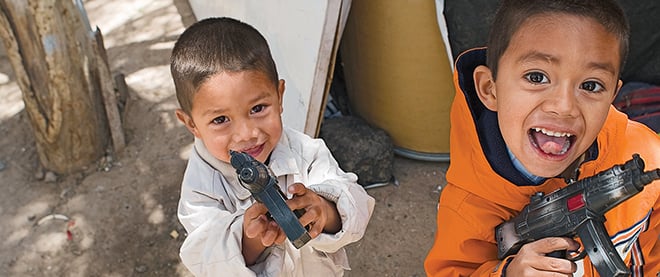Mexico’s baby gangsters
A survey finds more than a quarter of Mexican junior high school students see a career in organized crime
Keith Dannemiller/Corbis
Share

Cartel kingpins could hardly be considered role models in a country where the drug wars have claimed more than 50,000 lives in the last six years. But an increasing number of Mexican youth see career opportunities in organized crime, whose activities range from running extortion rackets to producing methamphetamines and peddling pirated merchandise.
A recent survey of 1,400 junior-high school students in eight Mexican states found that more than 26 per cent of respondents aspired to careers as “narcos” (drug dealers) or “sicarios”—their toughs. “They see it as an option, a chance to quickly climb the social ladder,” says researcher José del Tronco of the Latin American Faculty of Social Sciences in Mexico City.
Slightly more than 17 per cent aspired to be business people, but the prospect of easy money seduces kids, del Tronco says, especially in regions where “the state is absent” and criminal groups offer security, employment and sometimes charity. There’s also the oft-glorified narco culture, reflected in the catchy and popular narcocorridos (drug ballads).
New President Enrique Peña Nieto says the country needs to see six per cent annual growth to accommodate those entering the job markets. It might also keep kids from a life of crime.